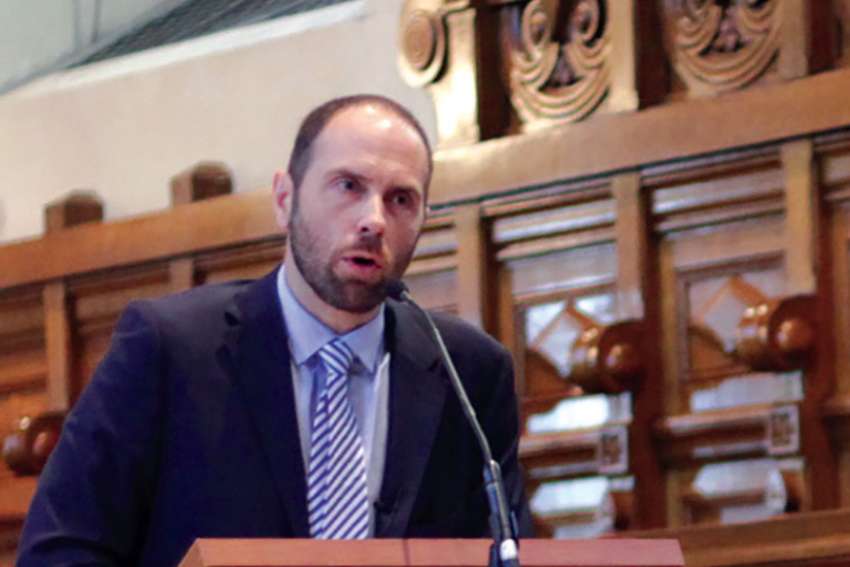“The family is the basic unit of society and children do not belong to the state. It is the state that is at the service of society that must be at the service of the family,” said Jean-Leon Lafitte in an address to the University of the Family symposium Sept. 8.
Sex education has not been a mandatory part of Quebec schools’ curriculum for more than a decade, but as of this fall will be taught from kindergarten through high school. It is modelled on programs that are taught in provinces such as British Columbia and Alberta. In Ontario, the sex-ed curriculum has become a hot button issue, with Doug Ford’s new government scrapping the curriculum introduced in 2015 and reverting to a 1998 curriculum for elementary students.
Opponents say the new sex-ed in Quebec is incompatible with Catholic teaching, which emphasizes the union of man and woman in marriage for their mutual benefit, the well-being of children and human flourishing.
With the Oct. 1 Quebec election looming, Lafitte said parents must continue to make their voices heard and circulate petitions to halt the new sex-ed curriculum.
Lafitte noted that Article 26 of the UN Universal Declaration of Human Rights spells out the human rights of parents to choose the kind of education their children receive.
“When the Quebec government imposes a government program of sexual education based on ideologies and theories, such as marginal theories of gender, without scientific foundation, it does not respect Article 26 of the Universal Declaration of Human Rights,” said Lafitte.
Among the other speakers at the symposium was Montreal Archbishop Christian Lepine, who stressed the rights of parents to educate their children in accordance with their conscience.
Concerns around sex-ed in Quebec have been a catalyst for parents to come up with their own creative solutions. One approach that has been modeled in other jurisdictions in Canada and the U.S. is to have parents give the sex-ed course at home with the co-operation of their child’s teacher.
“It’s a cookie-cutter approach,” said Raymond Ayas, the spokesperson for the APCQ. “We know it works, it’s been done successfully in Ontario by PEACE (Ontario), an Evangelical group. This has to be done at the grassroots level. We’re not going to persuade the entire school board.”
In his view, this can only be done through dialogue with individual teachers.
Some parents have such a negative view of the current sex-education program that they are choosing to homeschool rather than expose their children to questionable ideas.
“I would like to have a Catholic public confessional school system where I could send my kids and the Catholic spirit would suffuse all subjects,” said Georges Buscemi, president of Quebec Life Coalition, who spoke on the culture of life and family.
Linguistic school boards replaced confessional, or separate, school boards in Quebec in 1998.


